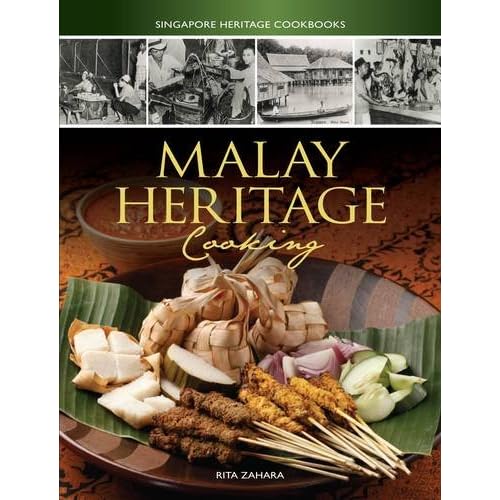With signs that the Silly Season is already starting, this article should give pause for thoughts to everybody hopefully.
Sunday February 5, 2012
ON THE BEAT By WONG CHUN WAI
Politicians must devote more attention to energising the economy in this period of economic uncertainties.
OUR politicians on both sides of the political divide have been so busy criss-crossing the country, meeting voters and delivering speeches, that many Malaysians are wondering whether anything gets done at all.
The political posturing ahead of the general election is beginning to test the patience of many Malaysians who feel that there are many urgent issues that need immediate attention in the midst of economic uncertainties.
Most companies are already looking at lower profits, if not losses, over the next few months and Malaysians certainly want our politicians to address issues that matter to their livelihood.
There may be some comfort from a recent report by global management consultant A.T. Kearney which ranked Malaysia as among the world’s top 10 most attractive destinations for foreign direct investment.
Malaysia also experienced a significant jump up the Index from 21st to 10th. Inflows jumped 537% from 2009 to 2010 to US$9bil (RM27bil).
This number will be further surpassed in 2011 and is likely to continue in this positive direction based on the sentiments reflected in Kearney’s FDI Confidence Index, a regular measure of senior executive sentiment at the world’s largest companies.
The Global Competitiveness Report 2011-2012, meanwhile, ranked Malaysia at 21 from its previous 26th position for overall global competitiveness.
The latest World Bank’s Doing Business Report also saw the country’s “Ease of Doing Business” ranking move up from 23 to 18, out of the 183 economies surveyed.
But while we may be happy with these positive news, we really need to watch how our neighbours are doing. And we are not talking just about the countries in the same range like Singapore, Thailand and Indonesia, but also the less developed ones, including Myanmar.
In Myanmar, the speed of reforms recently carried out by its government has surprised many, including its strongest critics. The generals are now focused on economic matters instead of on their usual political tirades, like condemning the Americans. Capitalism is suddenly a buzzword in Naypyidaw.
Last week, Myanmar Industry Minister U Soe Thein travelled to the annual World Economic Forum in Davos to promote the once pariah nation to the largest gathering of capitalists and leaders of the Western world.
He got the ears of these powerful businessmen by revealing that his government was drafting a tax incentive law, which would be the most attractive in the region, as it prepares to achieve a 6% growth target in 2012.
The law could be passed by the end of the upcoming parliamentary session in February and a plan is under way to boost the international business community’s confidence in the kyat, Myanmar’s currency, in consultation with the International Monetary Fund (IMF).
The package would include an eight-year tax exemption status with possible extension if the ventures prove profitable for the country.
He also revealed plans to upgrade the central bank to a fully independent entity instead of being just a department under the Finance Ministry.
The minister, who seldom meets journalists, said: “We were very busy meeting global policymakers, officials and CEOs.”
The delegation in Davos busied themselves attending sessions on the Eurozone crisis, job creation, sustainable energy and green policy, resources management, population and growth, poverty eradication, refugee and displaced persons, women and children, SMEs, anti-corruption and good governance.
“Yes, we are in a hurry ...” said the minister, citing the country’s preparations for the 2013 Southeast Asian Games, and 400 meetings scheduled before it assumes chairmanship of Asean in 2014, plus the Asean Economic Community in 2015, and to achieve the UN Millennium Goals.
While it is good for our neighbours to prosper, as the region will benefit as a whole, we should also be more vigilant about competition.
A recent report by the Hongkong and Shanghai Banking Corporation predicted that the Philippines would be the 16th biggest economy in the world by 2050, surpassing Australia, the Netherlands, Saudi Arabia, Indonesia, Thailand and Malaysia.
For a sense of perspective, we should recall that in the 1950s, the Philippines was the most dynamic economy in Asia and was hailed by the World Bank as a future powerhouse. Half a century later, the country was described as “the sick man of Asia”. And today, its future is shining bright.
No wonder that during the recent Taiwan presidential election, candidates were challenged not only on their position on China but also their views on the implications of the growing economies of the “VIP” countries, an acronym for Vietnam, Indonesia and the Philippines.
Certainly, if our politicians spend less time politicking and devote more attention to how our neighbours are energising their economies, we will be more prepared to face the future, which is more than just about who will win at the polls.
Enough time has been wasted on mind-boggling political issues that divide the nation. We need to get out priorities right.
.





 A book close to my heart is A Taste of Batu Gajah as it features not only Malay dishes from Perak but dishes from my Mandhailing clan. Where else can you fin
A book close to my heart is A Taste of Batu Gajah as it features not only Malay dishes from Perak but dishes from my Mandhailing clan. Where else can you fin d a recipe for Gulai Daun Ubi Tumbuk eh? And as a northener, another recipe book that I love is Favourite Dishes From The Tunku's Kitchen. Our first Prime Minister does eat well and because of that, his heritage in recipes are now well preserved for the common man as the recipes are actually traditional common kitchen dishes that we may have forgotten in this age of nasi bungkus and Padang restaurants.
d a recipe for Gulai Daun Ubi Tumbuk eh? And as a northener, another recipe book that I love is Favourite Dishes From The Tunku's Kitchen. Our first Prime Minister does eat well and because of that, his heritage in recipes are now well preserved for the common man as the recipes are actually traditional common kitchen dishes that we may have forgotten in this age of nasi bungkus and Padang restaurants.



